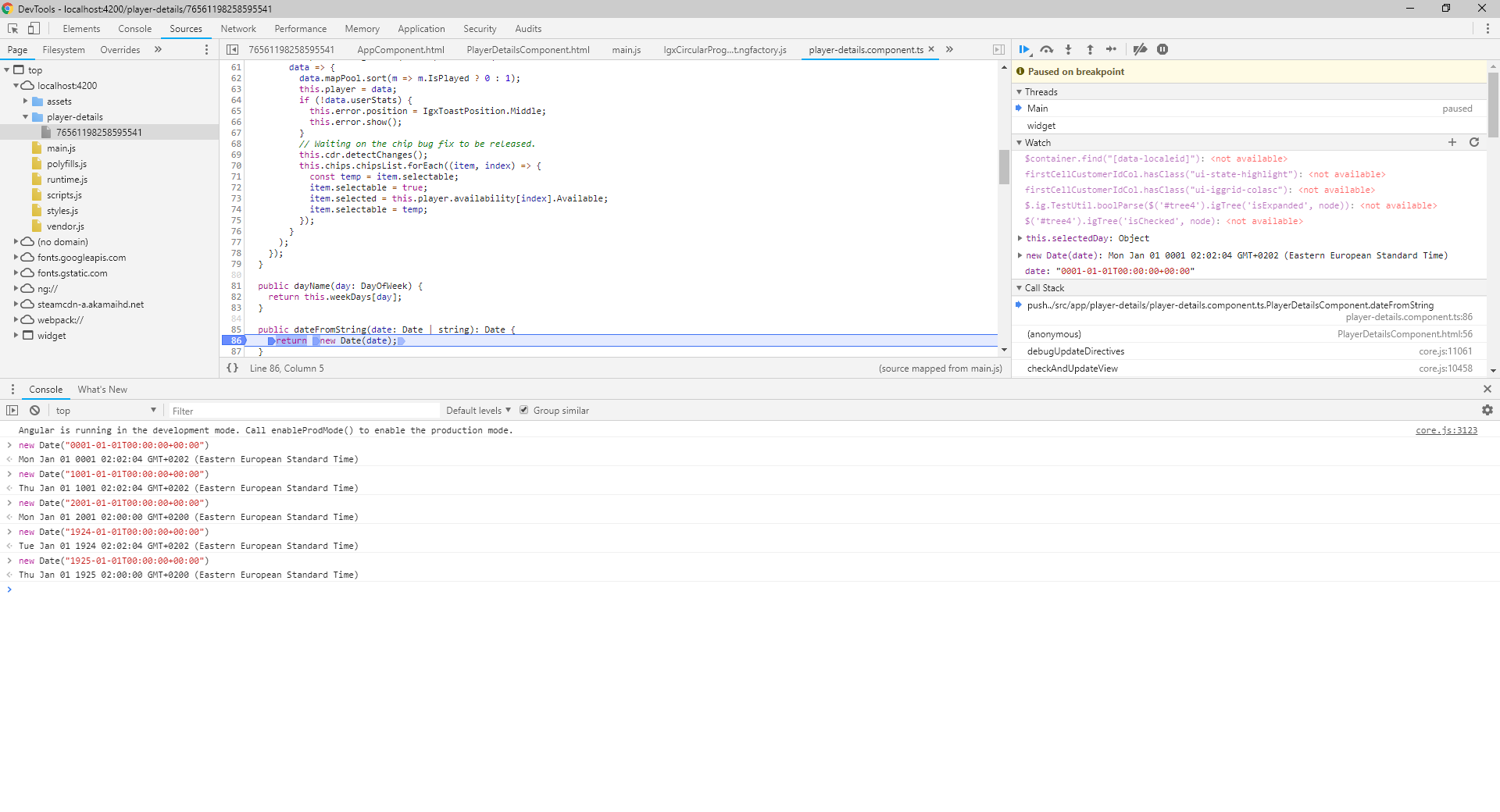I have an application which allows users to pick some time slots. By default the timeslots are empty, and my .NET back-end has default generated values of type DateTimeOffset, which by default are set to "0001-01-01T00:00:00+00:00".
Now, when I populate a date on the front-end with this value, it generates a date in the local time zone, but with wrong minutes and seconds. This happens only in Chrome. I'm not seeing this under Edge or Firefox.
console.log(new Date("2001-01-01T00:00:00+00:00").toString())
// Mon Jan 01 2001 02:00:00 GMT+0200 (Eastern European Standard Time)
console.log(new Date("1001-01-01T00:00:00+00:00").toString())
//Thu Jan 01 1001 02:02:04 GMT+0202 (Eastern European Standard Time)
console.log(new Date("1801-01-01T00:00:00+00:00").toString())
//Thu Jan 01 1801 02:02:04 GMT+0202 (Eastern European Standard Time)
console.log(new Date("1901-01-01T00:00:00+00:00").toString())
//Tue Jan 01 1901 02:02:04 GMT+0202 (Eastern European Standard Time)
console.log(new Date("1961-01-01T00:00:00+00:00").toString())
//Sun Jan 01 1961 03:00:00 GMT+0300 (Eastern European Standard Time)
console.log(new Date("1921-01-01T00:00:00+00:00").toString())
//Sat Jan 01 1921 02:02:04 GMT+0202 (Eastern European Standard Time)
console.log(new Date("1931-01-01T00:00:00+00:00").toString())
//Thu Jan 01 1931 03:00:00 GMT+0300 (Eastern European Standard Time)
console.log(new Date("1922-01-01T00:00:00+00:00").toString())
//Sun Jan 01 1922 02:02:04 GMT+0202 (Eastern European Standard Time)
console.log(new Date("1923-01-01T00:00:00+00:00").toString())
//Mon Jan 01 1923 02:02:04 GMT+0202 (Eastern European Standard Time)
console.log(new Date("1924-01-01T00:00:00+00:00").toString())
//Tue Jan 01 1924 02:02:04 GMT+0202 (Eastern European Standard Time)
console.log(new Date("1925-01-01T00:00:00+00:00").toString())
//Thu Jan 01 1925 02:00:00 GMT+0200 (Eastern European Standard Time)As you can see, I played around with the date, to see before which date this happens, but the problem may not be the year 1925, just certain time before the current date. Does anyone know why this is happening?
